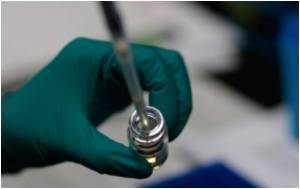
The trial involves a strategy known as pre-exposure prophylaxis, or PrEP, in which HIV-uninfected individuals who are at risk for contracting the virus take one or two HIV drugs routinely in an effort to prevent infection. Called Novel Exploration of Therapeutics for PrEP, or NEXT-PrEP, the two-year study is sponsored and funded by the National Institute of Allergy and Infectious Diseases (NIAID), part of the National Institutes of Health.
"The NEXT-PrEP study will examine whether maraviroc-based PrEP is safe and well-tolerated. It is a necessary first step before we can test the effectiveness of maraviroc-based PrEP, and in the future, potentially expand the selection of drugs that may be used in this emerging HIV prevention strategy," said NIAID Director Anthony S. Fauci, M.D.
Led by principal investigator Roy M. Gulick, M.D., M.P.H., chief of the Division of Infectious Diseases and professor of medicine at Weill Cornell Medical College of Cornell University, the study team will enroll 400 HIV-uninfected men who have sex with men (MSM) ages 18 and older in 12 cities in the United States and Puerto Rico. The volunteers will be assigned at random to take one of the following four PrEP study regimens daily for 48 weeks:
Maraviroc (300 milligrams)
Maraviroc (300 milligrams) plus emtricitabine (200 milligrams)
Maraviroc (300 milligrams) plus tenofovir disoproxil fumarate (300 milligrams)
Emtricitabine (200 milligrams) plus tenofovir disoproxil fumarate (300 milligrams)
Placebo pills will be added to the regimens as needed so that neither the participants nor the study team will know who is taking which regimen. The investigators will observe whether the volunteers experience any serious side effects and assess whether they continue taking their PrEP regimens as recommended. If the study drugs appear to compromise a participant's health, he will be directed to stop taking them.
Advertisement
The NIH-funded HIV Prevention Trials Network (HPTN), in collaboration with the AIDS Clinical Trials Group (ACTG), is conducting the NEXT-PrEP study, also called HPTN 069/ACTG 5305. Gilead Sciences Inc. of Foster City, Calif., and ViiV Healthcare of Brentford, England, are donating the study drugs.
Advertisement
The NEXT-PrEP study leaders chose to examine PrEP regimens containing maraviroc (brand name Selzentry) for several reasons. All other PrEP regimens tested to date involve tenofovir alone or in combination with emtricitabine. Concerns about potential toxicity and the development of drug resistance suggested to the scientists that a wider array of antiretroviral drugs with optimal properties for HIV prevention should be explored.
Source-Eurekalert














